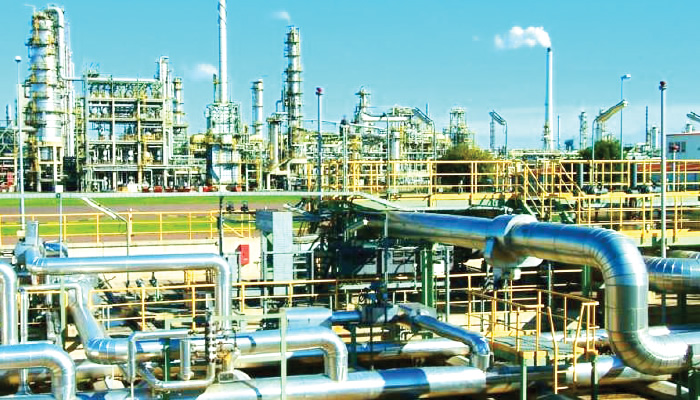Mr Ularamu Ubandoma, the National Coordinator, Rural Access and Mobility Project (RAMP) says 18 more states will benefit from 500 million dollars World Bank assisted projects.
The project is under the Rural Access and Agricultural Marketing Project (RAAMP3).
Ubandoma said this at the unveiling of selected participants in the 18 states under the RAAMP 3 project and Pre Appraisal Mission Wrap Up Meeting with the development partners in Abuja on Friday.
According to him, the selected states are able to meet the criteria set up by RAMP and the three development partners were involved in their selection.
He said that 50 to 60 million dollars would be used to construct about 500 km roads in each of the 18 participating states across the country.
“The whole essence of the project sponsored by the World Bank, French Development Bank and Africa Development Bank is to provide suitable road network for rural farmers to convey their farm produce to the market to avoid losses.
“What we are doing here today is a meeting with new RAAMP states. New RAAMP is rural access and agricultural marketing and we have about 18 states that have been selected to participate in this new project all over the country.
“In the North East, we have Borno, Bauchi and Taraba. In North Central, we have Plateau, Benue, Kogi and Kwara. In North West, we have Kano, Kastina, Sokoto and Kebbi.
“In South East, we have Abia and Anambra. In South South, we have Cross River and Akwa Ibo. In South West, we have Ogun, Oyo and Ondo States. These are states that emergence from the six geo-political zones.
“The new RAAMP3 will be a little different from the usual RAMP1 and 2, and we have implemented projects in seven states and these projects are almost 100 per cent conclusion.
“The only difference is that we are targeting RAAMP3 in line with president Buhari’s policy on agricultural transformation.
“The policy is implemented through the Green Agricultural Alternative under the leadership of the Minister of Agriculture Chief Audu Ogbeh.
“The thinking now is zero rejection of our agricultural produce at the international markets,” he said.
Ubandoma said that the third phase of this project, RAAMP3 was to improve rural access and agricultural marketing in the selected participating states, whilst enhancing sustainability of the rural and state road network.
“We are going to target markets and the value chains by adding value to our agricultural produce right from production level. We will be looking at storage and processes.
“We want to know how these produce can access different level of markets. We are trying to shift away from the usual market not considering the rural people.
“We are now considering the rural people because they form the bulk of our production level and they are predominantly farmers living in the rural areas.
“We believe if we develop the rural farmers through the provision of markets, definitely the economy will improve and we will be earning foreign exchange through exportation, ” he added.
Ubandoma, however appealed to state governors to show some level of seriousness in paying their counterparts fund which is just eight per cent of the total cost of the project in their states.
Mr Tesfamichael Nahusenay, the World Bank Task Team Leader said from the result of study conducted in Nigeria, 60 per cent of farm produce got wasted during transportation and lack of storage facilities.
He said that World Bank hoped to add value to farmer’s income by giving them access to market after harvest, proper handling of farm produce after harvest and provide storage facilities to them.
“World Bank has been providing assistance to Nigerian government for many years and we have standard for procedure in execution of any project in the country.
“The Federal Government will receive the fund they lent to states. We have mechanism to process the procurement process to ensure that value for money is achieved and transparency in transaction.
“At the end of the day, money intended for any project is used correctly. We do direct checking of the projects across all the states. The states bring back the money if they cannot achieve the set project.
“We do field visit to ensure that the goods are delivered in appropriate time and ensure standard,” he said.
Assessing the level of RAMP2 project, the Adamawa Project Coordination, Mr Abbas Adamu said about 201.4 km of roads had been completed in 13 locations under the first phase in the state.
He added that about140 km was ongoing under the second phase which would be completed by December across the state.
He said so far, farmers in the state had benefited from RAMP projects through easy access to market after harvest for better livelihood.
The Project Coordinator however appreciated the support of the state governor on his intention to change the entire state with good and quality roads, adding that the governor did not deviate in payment of counterpart fund.
Mr Gideon Akpan, the Project Coordinator, Akwa Ibom RAAMP3 said that the state decided to join in the project because of the state governor’s transformation agenda in agriculture.
“Looking at the past resources we have in agriculture sector, we decided to express interest in joining the third phase of the project to bring development to our rural farmers.
“Most of the challenges our farmers faced is the inability to access market after harvest due to bad road networks,’’ he said.
NAN reports that RAMP is a Federal Government agency saddled with the responsibility of constructing rural roads to help farmers to access markets to avoid post harvest losses.
RAMP is a co-sponsoring project of the World Bank, the French Development Agency, Africa Bank and the Federal Government.




